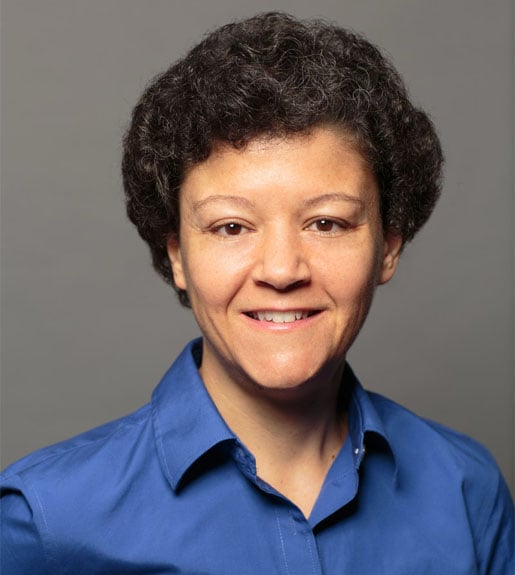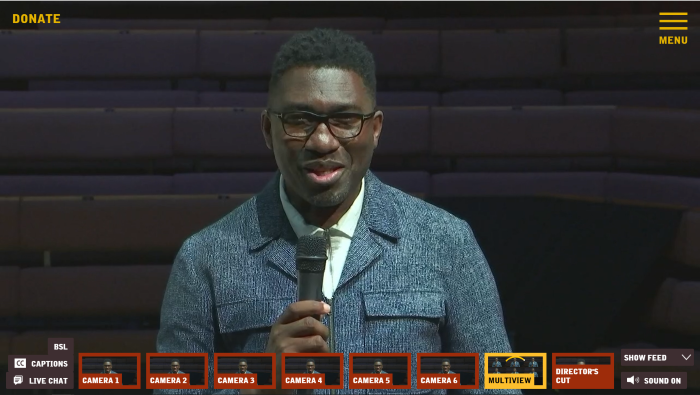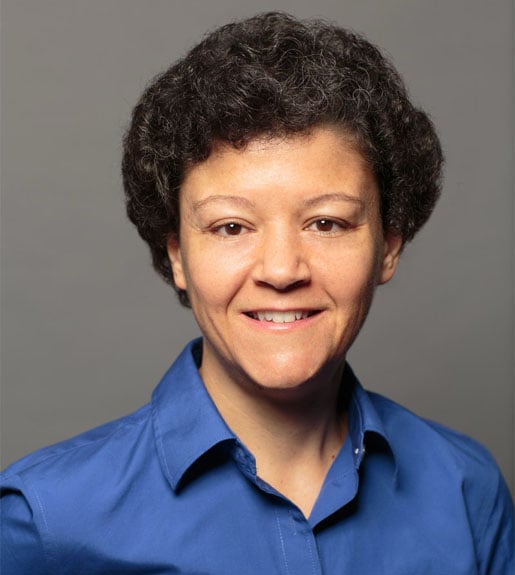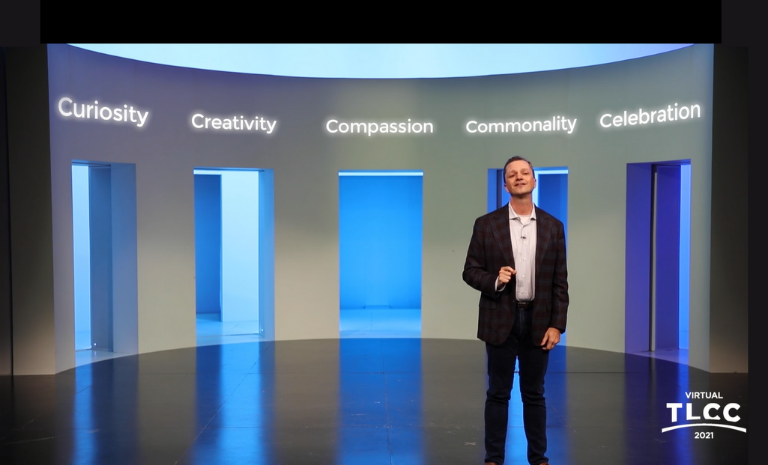Digital
Arts and Culture
Article
Insights & Innovation
b8c86169-5cdc-4151-9934-981324e451a6
5 min
https://edge.sitecorecloud.io/tessituraneab9a-tessiturane5642-staging-5396/media/Images/Discover-Images/Thought-Leadership/TLCC-Keynote-768x465.png?h=465&iar=0&w=768
Kristen Olson reflects on a keynote conversation between Kwame Kwei-Armah and Seb Chan
Demystifying the Future

Vice President of Learning & Community, Tessitura Network
Demystifying the Future
9/23/2021
5 min
I love the energetic exchange of a great conversation.
So I was thrilled when Young Vic’s Artistic Director Kwame Kwei-Armah and Australian Centre for the Moving Image’s Chief Experience Officer Seb Chan agreed to be our keynote speakers for TLCC 2020. When we first met in January and February 2020, both were committed to interrogating the present for clues about how best to prepare for the future. They were thinking deeply about how emerging technologies were changing patron expectations for arts and cultural experiences. We decided to title that talk “Demystifying the Future.”
And then 2020 unfolded, with its seismic disruptions. TLCC 2020 was cancelled.
The keynote conversation between Kwame and Seb finally took place at our all-virtual TLCC in August 2021. In many ways, that conversation was much more urgent, immediate, and relevant than what would have happened a year earlier. After 18 months of pandemic lockdowns, a worldwide reckoning with systemic racism, and a sector-wide pivot to digital offerings, arts and culture is grappling with some big questions.
I almost hesitate to share my takeaways from the session, because I want to encourage you to view and experience the conversation for yourself. The interplay of ideas between Kwame and Seb is exhilarating, and their passion, energy and absolute enjoyment of the conversation is contagious. Still, I am going to share with you two ideas that really stayed with me.
1. Art on screen: quantity vs. quantity
Both are thinking about how the affordances of digital offerings can be used to enhance the single-sensory, purely visual sensation of experiencing art through a screen. Seb makes the point that while digital cannot replace the multi-sensory depth of access to a piece of art when one stands in front of it, digital provides a quantity of experience that the physical experience can’t. That is, digitally a viewer can see all the artist’s works, see how the artist’s work developed over time, dig deeper into their influences, and zoom into sections of the pieces.
“Digital provides a quantity of experience that the physical experience can’t.”
Kwame confesses that he will always want to “see the spittle and smell the funk” of an actual theater performance. But under his leadership, the Young Vic has developed an innovative digital platform, Best Seat in Your House, to expand the way digital audiences access live performances. Livestream viewers control from where in the venue they view the performance: they can switch among six single cameras, view all six cameras on the same screen, or choose to view the director’s cut.

Screenshot of the Young Vic’s Best Seat in Your House.
2. Deconstructing and reconstructing art forms
I also loved hearing them discuss how digital technologies are encouraging the deconstruction and reconstruction of art forms and by extension the dismantling and rewriting of fixed narratives. As Seb put it, “We live in a remix culture. Art is not fixed.” He goes on to explain how every visitor to ACMI is given a device called The Lens upon entering. The Lens allows them to collect items of interest to bring home with them to explore further. The items they collect effectively become props that they use to tell the story of their visit to others.
“We live in a remix culture. Art is not fixed.”
Museums used to be organized “to tell a very fixed story, usually a colonial story,” Seb noted. Today, they have become provocations for further exploration.
At one point in the conversation, Kwame asks Seb: “As a curator during the time of the remix, how stable do you feel, how rocky is the earth?”
Seb answers, “It’s superfluid. And I think that’s what really exciting about it.”
Their conversation, too, is superfluid. And important. Please, if you haven’t watched it, do yourself a favor and spend 35 minutes with these deep thinkers as they attempt to demystify the future.
Top photo of Seb and Kwame presenting from their offices.
Topics
Digital
/Arts & Culture

Kristen Olson
Vice President of Learning & Community
Tessitura Network

Why Arts & Culture is Essential Today
Arts & Culture
Healing the world requires five human traits: arts & culture delivers them all.

A contactless customer journey with a personal touch
Arts & Culture / Business Strategy / COVID-19 / Technology / Ticketing & Admissions
How Georgia Aquarium creates a visitor-focused experience